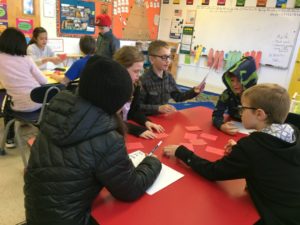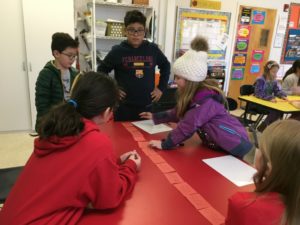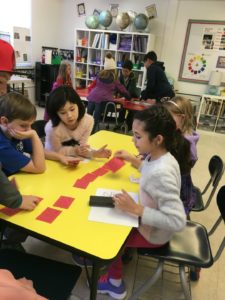by Jill & Sarah | Feb 1, 2019 | In The Loop
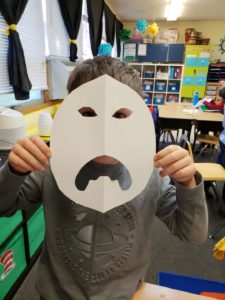 History & Geography
History & Geography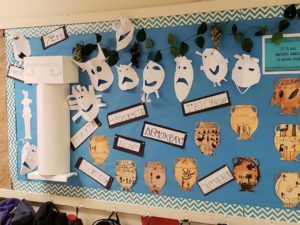
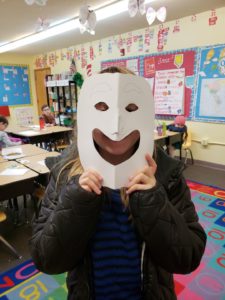
In our studies of Ancient Greece this week we learned about the great thinkers of Greece, Plato, Socrates, and Aristotle. We talked about Greek chorus and acted out some Aesop’s fables. The students made tragedy and comedy marks. On Friday we played jeopardy and reviewed for our assessment next week.
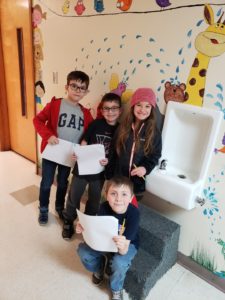 Our objectives:
Our objectives:
• identify Socrates, Plato, and Aristotle as great philosophers of ancient Greece
• understand how ideas can spread through writing and teaching
• identify Alexander the Great
• indicate on a map that area Alexander the Great conquered
• listen to a variety of Aesop’s Fables
•act out fables as part of a Greek Chorus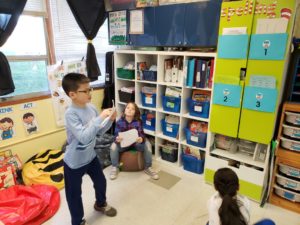
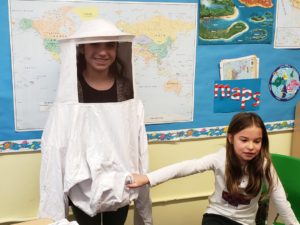 Science
Science
This week we took a pausing point and reviewed what we’ve learned so far about the interesting world of insects. We watched a film on Wednesday about insects and wrote more in our insect journals. On Friday we began learning about social insects, ants and termites.
Our objectives were to:
• explain that insects are the largest group of animals on Earth
• explain that there are many varieties of insects
• identify and describe three main body parts of insects: head, thorax, abdomen
• identify the placement and / or purpose of an insect’s body parts
• distinguish between social and solitary insects
• explain that most insects live solitary lives but some such as ants and termites, are social
• describe how all members of a social insect colony come from one queen
• describe the social behavior of ants and ant colonies
• describe the roles of worker ants, males, and queens
English Spelling and Writing
In our journals we used the idiom of the week, I stuck my foot in my mouth. The class worked on two sort activities this week to prepare for their final spelling test on Friday. Several students also took a Word Wall test this week. Our Word Wall words were: one, old, or, outside.
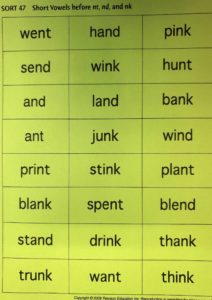
Green spelling sort
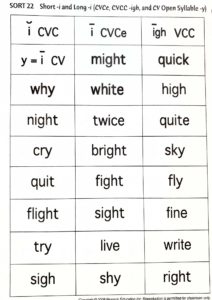
Blue spelling sort
La lectura
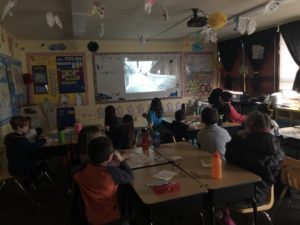
This week we read Todos Creyeron que lo habían visto.
Our weekly objectives were to:
- Understand the story vocabulary
- review asking questions during our first read
- during our second read use the comprehension skill making conclusions
- practice finding linking and helping verbs within sentences
Las matemáticas
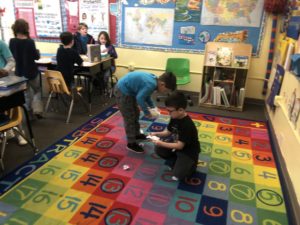 This week we wrapped up our unit on Volume. Our weekly objectives were to:
This week we wrapped up our unit on Volume. Our weekly objectives were to:
- Practice reading the number of liters on a marked container
- apply knowledge to real world volume problems
- review for the test by playing snowball toss
- show what we know on the chapter test
Specialists:
Art with Ms. Kelly
The students did a wonderful job with 2 challenging art projects this month.
Art Project: Make a Winter Landscape with Animals, using collage technique
Book: “Over and Under the Snow” by Kate Messner, with art by Christopher Silas Neal
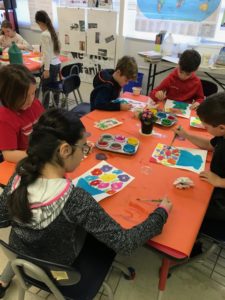 Goals:
Goals:
- Observe illustrations in book, especially close-up and far away trees
- Learn about forest animals in winter
- Practice drawing a fox using geometrical shapes
- Cut out basic shapes to make a red fox, a mouse, and a deer
- Cut out shapes to make trees, and add texture with crayon
Art Project: Folk Art Flowers
Book: Art From Her Heart, Folk Artist Clementine Hunter by Kathy Whitehead
Goals:
- Learn about Clementine Hunter, an African American folk art painter
- Draw a bowl or vase with crayon, and add simple flower shapes to fill page
- Paint with tempera paint
I hope to display these beautiful flower paintings on the bulletin board in February!
Music with Ms. Erin
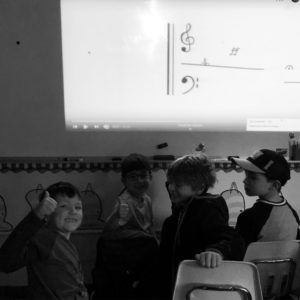 In January we learned about fast and slow tempos, speeding up and slowing down within a musical piece, reviewed forte and piano dynamics, and learned how to draw the treble and bass clefs. We also listened to music by composers Grieg, Beethoven, and Vivaldi.
In January we learned about fast and slow tempos, speeding up and slowing down within a musical piece, reviewed forte and piano dynamics, and learned how to draw the treble and bass clefs. We also listened to music by composers Grieg, Beethoven, and Vivaldi.
In February we will be learning about the letter-name notes in the C major scale, and the names of the notes on the treble staff. We will learn how to draw the rests that correspond with our previously learned notes: whole note (4 beats), half note (2 beats), and quarter note (1 beat). We will be singing and playing notes while reading them on the staff.
by Sarah Segall | Feb 1, 2019 | In The Loop
Project: We will be celebrating the 100th day of school on Thursday, February 14th. This is a BIG day for us! We have been working on counting up to 100 since the first day of school! Please help your child to design a Valentine box that contains 100 of any item. (100 stickers, 100 beads glued on, 100 hearts, 100 buttons, 100 wiggly eyes, 100 of anything! You could even do 10 groups of 10!)
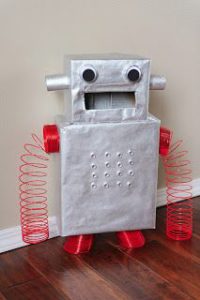
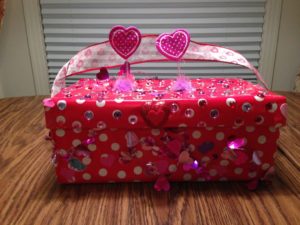
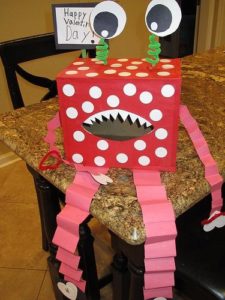
La lectura
This week we completed our Wind unit. A few of the stories we read this week were Tormenta de Nieve and Feriado. The students especially enjoyed listening for all the rhyming words in Feriado.
I have been very impressed with how the students are doing during our word of the day. I always ask for volunteers to use the word in a sentence. Typically every student provides at least one sentence. Their Spanish word of the day is written in their planners. They are pretty close to reaching 1000 tallies (which earns them a piñata)!
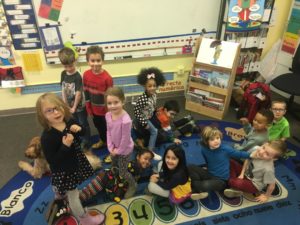
delante de (in front), detrás (behind), debajo (under), al lado de (next to), encima (on top of)
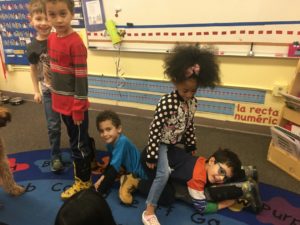 We also started working on prepositions, words that show location. This was very fun! We rolled a pictorial die and drew names sticks to have students put their whole body in certain locations/positions. We will continue to work on this for ….ever!
We also started working on prepositions, words that show location. This was very fun! We rolled a pictorial die and drew names sticks to have students put their whole body in certain locations/positions. We will continue to work on this for ….ever!
All students received a new reader this week (some received 2). Please remember to have your child read to you each night (and to read to them!). They should mark off their treasure sheet each time they read a book. They should read their new books and then can go back and read older books too. These reading binders should go home and come back to school each day please! Students are always bummed when it’s time to read and they have forgotten their books at home.
Please look for an email regarding our upcoming Valentine’s Day and 100th Day celebrations.
Las matemáticas
This week we focused on composing and decomposing the number 16. The students all did a great job using their two sided circles as a visual representation, as well as using number bonds/ números conectados and equations.
We started looking at how numbers work together and form number families. (3+5 is the same as 5+3) We also started talking about subtraction. (8-3 is 5 and 8-5 is 3).
These activities are part of our operations & algebraic thinking and help us to better understand addition and subtraction.
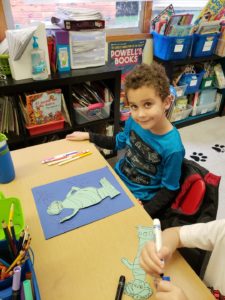 History & Geography
History & Geography
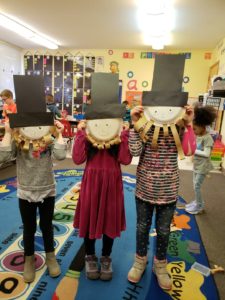
Abraham Lincoln
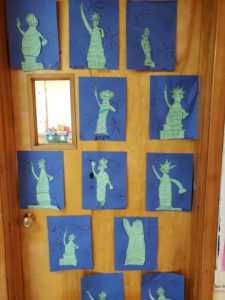
Our objectives this week were to:
• recognize Abraham Lincoln as an important president of the United States •identify that Abraham Lincoln was known as Honest Abe
• recall information about Abraham Lincoln’s younger life
• identify the Emancipation Proclamation and how this affected our country.
• recognize Theodore Roosevelt as an important president of the United States
• know that Theodore Roosevelt overcame childhood health problems
• know that Theodore Roosevelt loved the outdoors
• know that Theodore Roosevelt worked for nature conservation
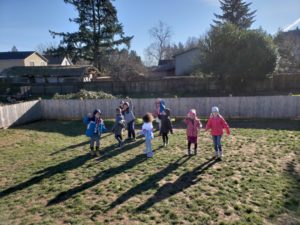
Playing outdoors
Science
This week we learned about seasonal activities and sports and how these help us feel less cooped up. We also read about severe weather and how we protect ourselves by using proper gear and practicing safe behavior. Students did an interactive drawing activity with a partner, showing severe weather and ways they can protect themselves. They then shared these pictures with the rest of the class.
Our objectives were to:
• describe any unique seasonal differences that are characteristic of our own locality
• Identify the four seasons and activities that are associated with those seasons
• identify the following characteristics of thunderstorms: heavy rain, thunder, lightning, and strong winds
• identify and describe different types of severe weather
• describe safe and unsafe behaviors during severe weather
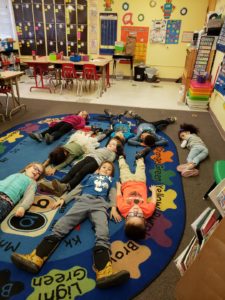
What to do in a thunderstorm if you can’t get to shelter.
Specialists: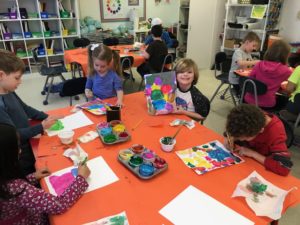
Art with Ms. Kelly
K/1 Class
The students did a wonderful job on 2 challenging projects in January:
Art Project: Make a Winter Landscape with Animals, using collage technique
Book: “Over and Under the Snow” by Kate Messner, with art by Christopher Silas Neal
Goals:
- Observe illustrations in the book, especially close-up and far away trees
- Learn about forest animals in winter
- Cut out geometrical shapes to make a red fox and a mouse
- Cut out shapes to make trees, and add texture with crayon
Art Project: Folk Art Flowers
Book: Art From Her Heart, Folk Artist Clementine Hunter, by Kathy Whitehead
Goals:
- Learn about Clementine Hunter, an African American folk art painter
- Draw a bowl or vase with crayon, and add flowers to fill page
- Paint with tempera paint
VOLUNTEERS: There is room and need for 2 parent volunteers each week in Art. The sign-up sheet is still on the bulletin board by the office.
by Ivary & Paola | Jan 25, 2019 | In The Loop
La Lectura
 This week in Literacy, we continued working on our objectives from last week. Students did a great job editing, revising and writing their final book review piece. We are very excited to share these published pieces with you all on our Spanish bulletin next week. Be on the lookout!
This week in Literacy, we continued working on our objectives from last week. Students did a great job editing, revising and writing their final book review piece. We are very excited to share these published pieces with you all on our Spanish bulletin next week. Be on the lookout!
We also had a chance to finish reading El relato de un naufrago, by Colombian writer Gabriel Garcia Marquez. It was very moving to have had the opportunity to share with my students the work of one of the most accomplished and renowned writers in contemporary Spanish literature. They learned about him, the influence of his work not only in Latin-America but all around the world, and maybe got inspired to read some other classic pieces of Spanish literature.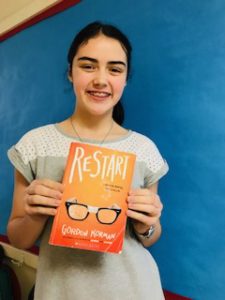
Ciencias
This week we continued to discuss the concept of adaptations. We started to view a video about population changes on the island of Hawaii. Students are identifying and reporting on the adaptations that affect the survival of organisms in this sensitive ecosystem.
Mathematics
This week we continued learning about Algebraic Expressions.
- We learned how to use the distributive property to expand algebraic expressions.
- Then, we learned different techniques to simplify algebraic expressions.
- Finally, we learned how to factor an algebraic expression.
(Written by: Juliette Murrow )
History & Geography
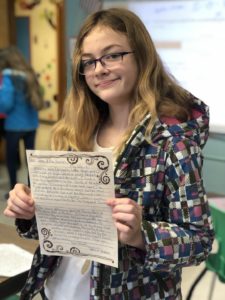 This week we continued learning about the French Revolution.
This week we continued learning about the French Revolution.
- We learned about what it is like to live in Versailles and how it was built.
- We wrote letters from a noble who lives in Versailles and about their daily life.
- We learned why people disliked Queen Marie Antoinette.
(Written by: Lily Hubbard)
English Writing & Spelling
This week we continued learning about Argumentative Writing. Our greek/latin roots this week were mob/mot, tract, and tend/tens/tent.
- We did a greek and latin roots packet with our greek and latin roots and learned that our roots all have something to do with movement.
- We learned about body paragraphs and the power of 3 and strengthening our argument.
- On tuesday we learned about writing an introduction and how it is the claim.
(Written by: Christian Alexander )
by Sarah Segall | Jan 25, 2019 | In The Loop
History & Geography
Our weekly objectives were to:
- Identify Ibn Batutta and describe his travels and his book Rihlah.
- Appreciate the value of Ibn Batuttaś eyewitness account of the medieval Muslim world.
- Recognize Shihuangdi´s sweeping political accomplishments as well as his tyrannical methods of leadership.
- Understand that Shihuangdi became obsessed with immortality and secrecy.
We ended this unit with our unit assessment in which all the kiddos did very well. We will have an end of unit celebration on Monday with African foods, music, dance, games and activities.
We are starting our new unit: Dynasties of China. As always if you have traveled here or have information you´d like to share with the class, we welcome you to do so!
Mathematics w/Laura
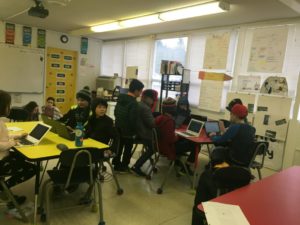
Decimals
- Review
- Put on Your Thinking Caps
- Chapter 7 Assessment on Thursday, January 24th
- Adding and Subtracting Decimals
Puzzles available for extra credit and Friday (Math) Bingo
Remember: MATH …. It’s everywhere
La lectura
This week we practiced our oral presentations and the students did peer critiques, stating something they liked and something that could be improved. Thank you to all the parents who assisted in creating the costumes and for attending the biography presentations.
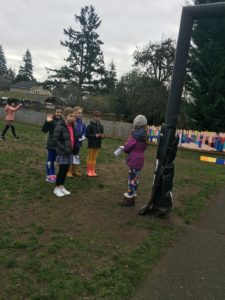
Practice! Practice! Practice!
We were tardy, due to the biographies, but we also read about New Year’s celebrations from around the world. We reviewed and then practiced all the reading strategies we have been working on.
A new spelling list went out on Thursday, to be tested on Friday, February 1st. Yes, FEBRUARY already!

Marco Polo
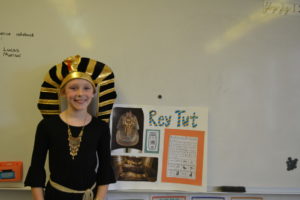
Rey Tut
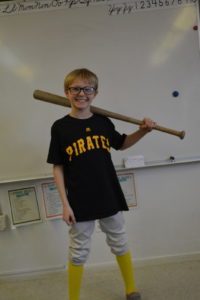
Roberto Clemente
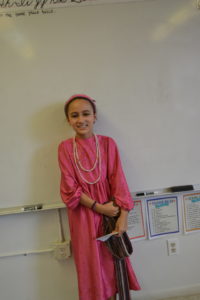
Helen Keller
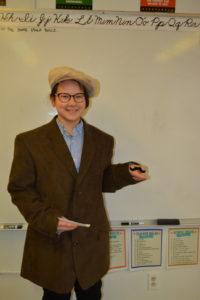
The Wright Brothers
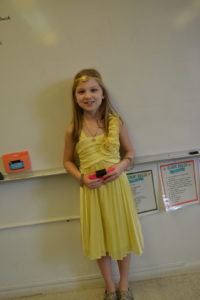
Cleopatra
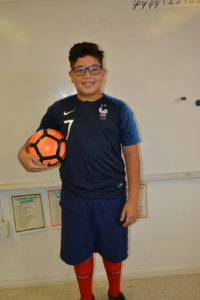
Antoine Griezmann
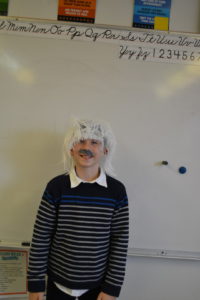
Albert Einstein

Cleopatra
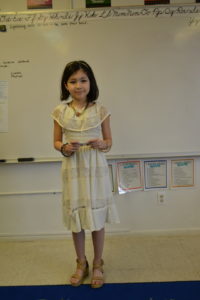
Cleopatra
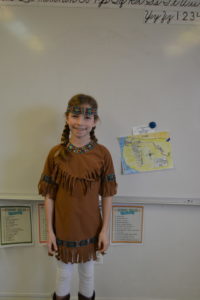
Sacagawea
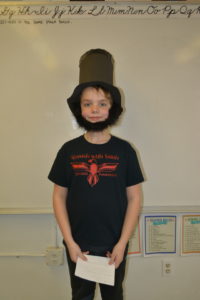
Abraham Lincoln
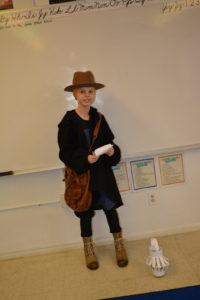
Harriet Tubman
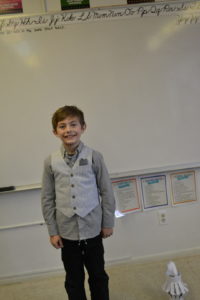
Albert Einstein

Abigail Adams
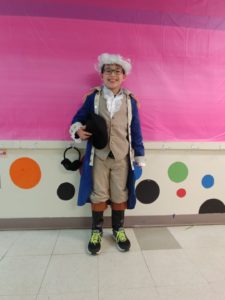
George Washington
Ciencias
Due to the short week and our biography reports, we chose to hold off on Science this week. We will go over the last exam, as a class, on Tuesday and then students will need to write out explanations for their answers (not just change the multiple choice answer). The corrections will then be due on Tuesday, February 5th.
We will start our next investigation on Tuesday: Natural Resourses.
by Jill & Sarah | Jan 25, 2019 | In The Loop
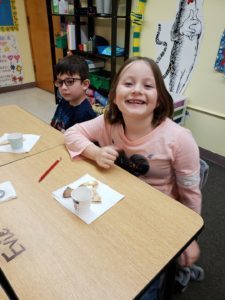
our symposium
History & Geography
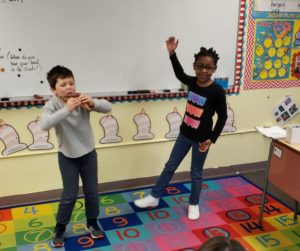
dancing and music at the symposium
Social Studies:
In our studies of Ancient Greece this week we learned took a tour of Athens and learned why they called the period after the Persian Wars the “golden age”. On Thursday we held a symposium, students enjoyed feta cheese, smoked fish, raisins, and Greek pita bread while listening to parts of Homer’s epic poem the Ilia, as well as some local talented musicians and dancers. On Friday the class worked on making tableaux drawings on Greek vases.
Our objectives:
•Understand the golden age as the period when Athenian culture reached its highest point
• identify Pericles as a ruler of Athens during its golden age
• recognize some additional features of Athenian life
• recognize an Athenian symposium
• Identify some arts in which Athens excelled, including pottery, music, and poetry
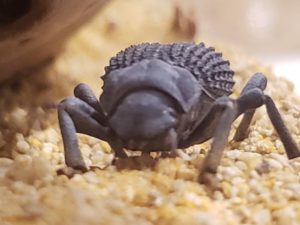 Science
Science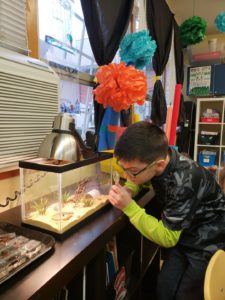
The class is having a so much fun getting to know Blue and Rose, our Blue Death Feigning beetles. This week we studied social insects, such as bees, ants, and wasps. In our insect journals we drew pictures of a bee and a wasp and wrote sentences of what we have learned about each of them.
Our objectives were to:
• explain that most insects live solitary lives but some such as honey bees and paper wasps, or social
• distinguish between social and solitary insects
• describe how all members of a social insect colony come from one queen
• describe the roles of honeybee workers, drones, and queens
• describe how honeybees communicate with one another through “dances”
English Spelling and Writing
On Tuesday we read about Dr. Martin Luther King Jr. and wrote in our journals about what his speech in Washington DC meant to us as individuals. In our journals we also used the idiom of the week, he has his head in the clouds. The class got their new spelling sorts and worked on several ways to sort them. They took a their practice test on Friday. Our Word Wall words were: off, other, our
La lectura
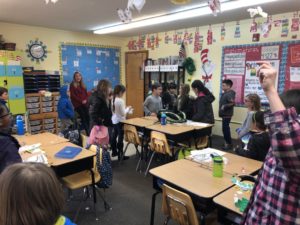
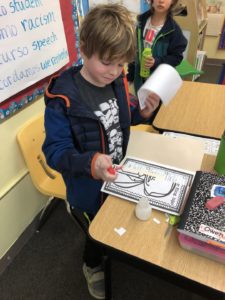 This week we learned about Martin Luther King Jr.
This week we learned about Martin Luther King Jr.
Our weekly objectives were to:
- Place important dates in Martin Luther King Jr.’s life in chronological order
- understand vocabulary from the passage
- Create a lap book about Martin Luther King Jr.
Our PUF words for next week are: negro, abre
Las matemáticas
This week we learned about Volume. Our weekly objectives were to:
- Explore and compare volume
- Use liters to estimate, measure, and compare volume
If you find any liter containers (milk boxes, Gatorade bottles, etc.) please have your kiddo bring them into class to empty use during math!
by Sarah Segall | Jan 25, 2019 | In The Loop
La lectura
This week we read another story about wind. This story was non-fiction and talked about all the different storms that are caused by wind. We also got to see some land formations and the affects of wind on the environment.
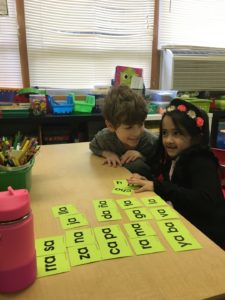
Using syllables with “a” to make words.
Our weekly objectives were to:
- follow along, asking and answering questions, during a read-aloud
- read one-, two-, and three- syllable words (with the letter “a”)
- dictation: correctly write the beginning sound and as much of the word as they can (They did GREAT at this!)
- write in their journals, correctly using space between words, capitals letters at the beginning of a sentence, and punctuation at the end.
- create a windsock (manga de viento) and tell about what it tells us.
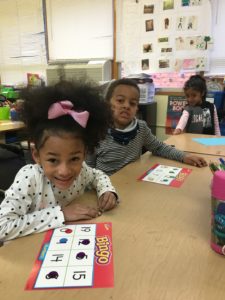
Practicing our number recognition with Friday BINGO.
Las matemáticas
We’ve really been working on number identification and number formation. Be sure to point out numbers everywhere and have your child tell you what they are, in Spanish!
Our weekly objectives were to:
- correctly identify numbers 1-15, out of order
- form all the possible formations of the number 15
- correctly write the numbers 1-15
- read addition equations from left to write, correctly reading the number, + Y, = SON
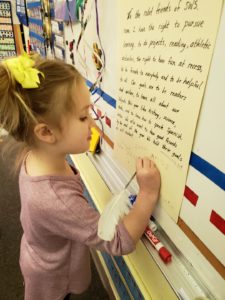
signing our class declaration
History & Geography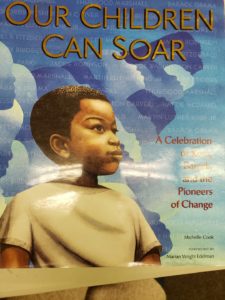
On Tuesday we talked about Martin Luther King Jr. and why we honor him with a holiday. We read a book and discussed people we admire. We learned more about Thomas Jefferson and the Declaration of Independence this week. As a group we came up with our own class declaration and each student signed it with a special pen. We also had lots of giggles drawing the statue of liberty with a Fourth of July firework display in the back ground. On Friday we began learning about Abraham Lincoln.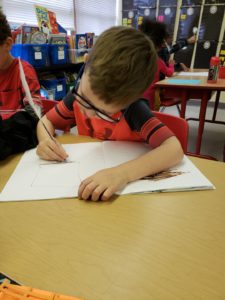
Our objectives this week were to: •recognize Thomas Jefferson as a third president of the United States
•identify Thomas Jefferson as the primary author of the Declaration of Independence
•describe the purpose of the Declaration of Independence as a statement of America’s Liberty
•identify the Statue of Liberty
• recognize Abraham Lincoln as the 16th president of the United States
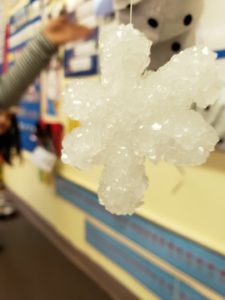 Science
Science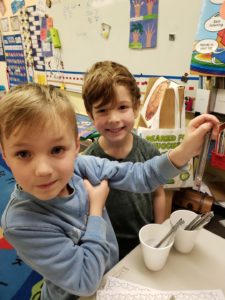
This week we finished our seasonal tree picture and read a fun book to go along with it. On Thursday we made Crystal borax snowflakes and used thermometers to test different temperatures of water in the classroom. We also had a lesson on autumn.
Our objectives were to:
• demonstrate understanding of the following units of time and their relationship to one another: day, week, month, year
• name the four seasons in cyclical order, as experienced in the United States, and correctly name a few characteristics of each season
• characterize autumn as generally the time that the air begins to chill, leaves change colors and fall from the trees, and farmers harvest their crops.
• name the months in this season
• identify ways in which the weather of this season affects our daily routines, such as dress, activities, etc
• name a holiday that occurs in this season

Student of the month
by Ivary & Paola | Jan 18, 2019 | In The Loop
La Lectura
The focus of literacy this week has been on a writing project – a book review. We have spent time analyzing the characteristics of a book review and have taken a close look at different samples written by other 6th grade students. Using a rubric, we have established the expectations for an accomplished piece. Every student has selected a book and has started the book review writing process working on their drafts.
• Analyze text, craft, and structure, citing text evidence.
• Use text evidence from close reading to write to a source.
• Pose and respond to specific questions with elaboration and detail by making comments that contribute to the topic, text, or issue under discussion.
• Cite textual evidence to support analysis of what the text says explicitly as well as inferences drawn from the text.
• Determine a theme or central idea of a text and how it is conveyed through particular details; provide a summary of the text distinct from personal opinions or judgments.
• Describe how a particular story’s or drama’s plot unfolds in a series of episodes as well as how the characters respond or change as the plot moves toward a resolution.
• With some guidance and support from peers and adults, develop and strengthen writing as needed by planning, revising, editing, rewriting, or trying a new approach.
Ciencias
This week students were introduced to the concept of adaptation. Tapping on their background knowledge and working in collaborative groups, students constructed arguments to explain this phenomenon, provided several examples and discussed their understanding. The class read an article on the topic and were able to confirm their definitions and expand their understanding, as well as answer comprehension questions. Next week, we will continue to explore more on this topic, watch some videos and take a closer look at different ecosystems to identify adaptations.
by Sarah Segall | Jan 18, 2019 | In The Loop
History & Geography
Our weekly objectives were to:
- Understand the significance of Mansa Musa´s reign in Mali.
- Describe Mansa Musa´s pilgrimmage to Mecca.
- Describe the ascendancy and social structure of the Songhai empire.
- Understand how Sonni Ali Ber and Askia Muhammad came to power and their contributions to Songhai.
- Identify Ibn Batutta and describe his travels and his book Rihlah.
- Appreciate the value of Ibn Battuttaś eyewitness account of the medieval Muslim world.
Mathematics w/Laura
- Comparing Decimals
- Rounding Decimals
- Fractions and Decimals
- Decimal Bingo!
- Next Assessment: Thursday, January 24th
Puzzles available for extra credit and Friday (Math) Bingo
Remember: MATH …. It’s everywhere
La lectura
This week we worked on retelling our story, in our own words, using the past tenses correctly.
Our weekly objectives were to:
- correctly conjugate verbs in the preterite tense
- correctly conjugate verbs in the imperfect tense
- correctly identify the differences of use for the preterite vs. imperfect tenses
- use our verb knowledge to revise our written reports and speeches (for next week)
- use our verb knowledge for this week’s spelling test
Ciencias
This week we practiced using our science notebooks to review and study for an assessment. This process also highlights how important good notetaking is. Each student used sticky notes to mark the three most important aspects of our most recent investigation.
We took our end of the unit assessment. Looking forward to starting our new investigation the week after our biography presentations.
by Jill & Sarah | Jan 18, 2019 | In The Loop
History & Geography
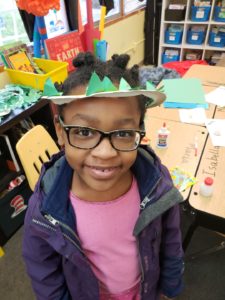 In our studies of Ancient Greece this week we learned about the Olympics and the Persian wars. Everyone had fun making wreaths for our Greek celebration day which will follow the end of this unit.
In our studies of Ancient Greece this week we learned about the Olympics and the Persian wars. Everyone had fun making wreaths for our Greek celebration day which will follow the end of this unit.
Our objectives:
• locate Olympia, Greece on a map
• identify who were allowed to participate in the Olympic Games
• describe the Olympic Games and include events that were held during these games
• understand that the games word event for which all the Greek city-states came together in peace
• compare and contrast the ancient Olympic Games to Olympic Games held today
• understand the Persian Wars as the successful effort of the small Greek forces to repel the huge invading Persian forces
• Identify some important battles of the Wars including Marathon, Thermopylae, and Salamis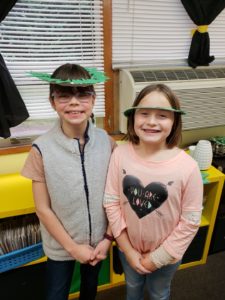
Science
We had some new friends join our classroom this week, crickets and Blue Death Feigning beetles. The class is having a great time observing these creature’s behaviors and activities. We continued to work in our Insect Journals writing about life cycles and personal narratives regarding interactions with insects.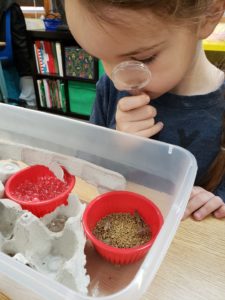
Our objectives were to:
• describe insect life cycles in the process of complete & incomplete metamorphosis • describe how some insects look like miniature versions of adults when they are born from eggs
• explain why some insects molt
• describe how some insects go through four distinct stages of development, including egg, larva, Pupa, and adult
• identify insects who go through a complete metamorphosis and insects that go through an incomplete metamorphosis
English Spelling and Writing
In our journals we used the idiom of the week,” I’m on top of the world”. We also wrote an insect story in our science insect journals this. The class worked on two spelling activities and their spelling sorts. They took a their final spelling test on Friday. Our Word Wall words were: make, more, not, none.
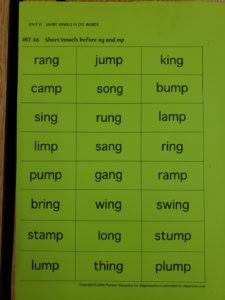
Next two week’s green sort
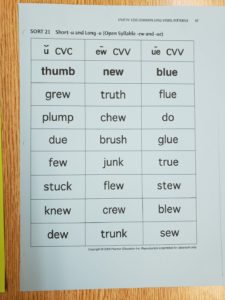
Next two week’s blue sort
History & Geography
 Our objectives:
Our objectives:
 Science
Science This week we wrapped up our unit on Volume. Our weekly objectives were to:
This week we wrapped up our unit on Volume. Our weekly objectives were to: In January we learned about fast and slow tempos, speeding up and slowing down within a musical piece, reviewed forte and piano dynamics, and learned how to draw the treble and bass clefs. We also listened to music by composers Grieg, Beethoven, and Vivaldi.
In January we learned about fast and slow tempos, speeding up and slowing down within a musical piece, reviewed forte and piano dynamics, and learned how to draw the treble and bass clefs. We also listened to music by composers Grieg, Beethoven, and Vivaldi.




















































